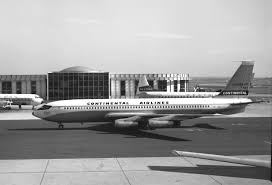
Introduction
The in flight experience has become a pivotal aspect of air travel, significantly affecting passenger satisfaction and airline success. With the aviation industry rapidly evolving, airlines are focusing on enhancing the passenger experience through technology, service improvements, and new amenities. As travel demand continues to grow post-pandemic, understanding the trends and developments in in flight services is essential for passengers and industry stakeholders alike.
Recent Enhancements in In Flight Services
In recent years, airlines have rolled out numerous enhancements to improve comfort and convenience during flights. One notable trend has been the increase in inflight connectivity options. According to a study by Inmarsat, 83% of business travellers believe that inflight Wi-Fi is essential for their travel experience. As a result, major airlines such as Delta and British Airways have invested heavily in satellite-based Wi-Fi, ensuring that passengers can stay connected while cruising at 30,000 feet.
Another significant development is the improvement of in-flight entertainment systems. Airlines are now offering a wider variety of movies, television shows, and music, often made available through personal devices via streaming services. For instance, Qantas has started introducing 4K resolution screens on select flights, allowing for an enhanced viewing experience. Additionally, several airlines are also incorporating virtual reality (VR) experiences into their entertainment systems, providing a unique way for passengers to pass the time during long-haul flights.
Focus on Health and Wellness
In light of the ongoing concerns regarding health and safety, especially post-COVID-19, airlines have reshaped their in flight services to prioritize passenger well-being. Enhanced cleaning protocols are now standard, with many airlines utilising electrostatic disinfection methods to ensure cabins are hygienic. Moreover, several airlines have introduced upgraded meal options that prioritise fresh and healthy ingredients, catering to the growing demand for wellness during travel. Singapore Airlines, for instance, has revamped its menu to include more nutritious meals and vegetarian options.
Conclusion
The in flight experience continues to evolve, shaping the future of air travel. With airlines focusing on connectivity, entertainment, and health, passengers can look forward to an improved travel experience. As the aviation industry adapts to modern demands, it is evident that the priority is on making air travel not only efficient but also enjoyable. Looking ahead, industry experts believe that further advancements, such as the integration of artificial intelligence and enhanced cabin services, will continue to transform the in flight environment, further enhancing passenger satisfaction. It is an exciting time for air travel, one that promises to keep passengers engaged and comfortable during their journeys.
You may also like

Exploring East Grinstead: History and Attractions

Exploring the Wonders of Isla Cangrejo in Tenerife
